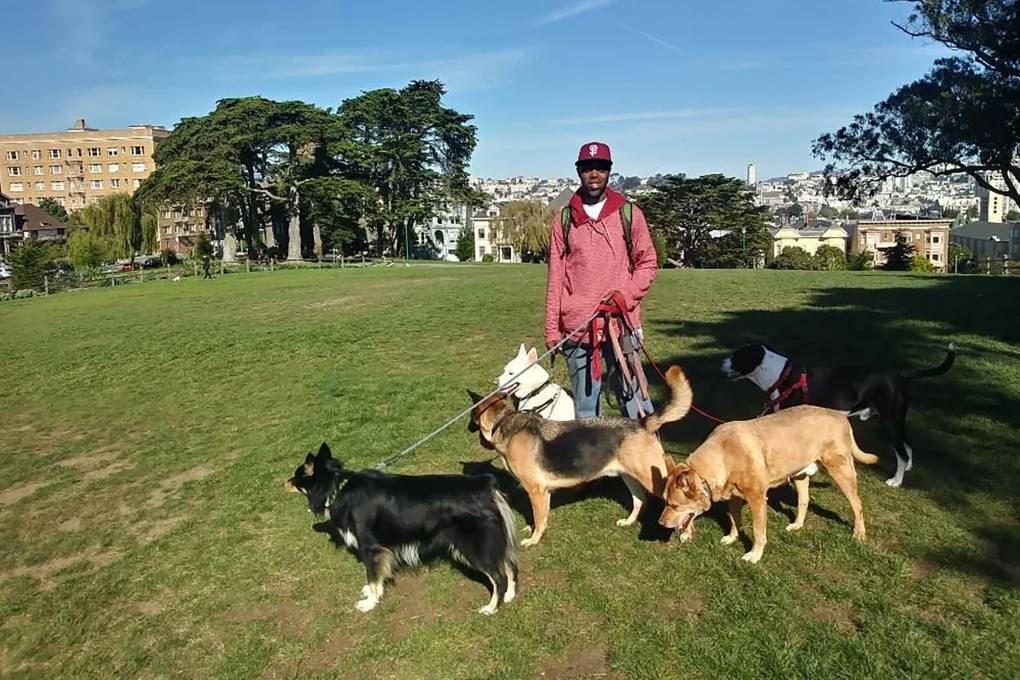After the back-and-forth, Scott said the police officers decided to handcuff Casimer Julca. She was arrested on suspicion of battery of the two city employees.
Scott said that he had reviewed the body-worn camera footage of the incident and said the officers used “a minimal amount of force.”
To release the footage, Scott said the Police Department would need to redact the face of the child and try to get permission from some of the witnesses in the video. He said he thought the department could do so within a week.
“There’s nothing that I saw in this video that officers or anybody else involved did anything other than what they were asked to do in the way that they were asked to do it,” he told the commission.
Michael Rouppet, the interim acting co-president of the Latinx Democratic Club, disagrees.
“When a woman is telling you that she’s leaving and then the next thing you see is she’s being pinned down on the ground, and the response to that is, ‘Well, we followed the process’ — that’s laughable. It’s not even genuine,” he said.
San Francisco has cracked down on illegal street vending over the past year. Last November, a 90-day vending ban along a long section of Mission Street went into effect. It was extended six months in February and again in August.
In May, the city also enacted new legislation allowing officials to remove and impound vendors’ materials if they do not vacate a location within 10 minutes of being ordered to cease vending for a safety hazard or vending without a permit, among other reasons.
“Within the last year, these folks have been targeted directly by city violence. This is directed from that focus, and what happens is it ratchets up the focus and the risk for violence,” Rouppet said.
He pointed to a video that showed Department of Public Works employees overturning a hot dog vendor’s cart on the Embarcadero last year and another incident this year in which a vendor near Mission and 19th streets had their carts taken.
“There should be some protection for food vendors across the board just by state law alone, but what’s happening is they’re trying to seize their carts, which is over the top,” Rouppet said. “When you take someone’s livelihood — and you’re threatening people’s livelihoods — there’s no question why they’re resisting that.”
The Latinx Democratic Club is calling for city officials to take steps to stop violence against vendors, which Rouppet believes will require a larger conversation about how they are treated and where they can operate.
He thinks there should “at least” be designated zones around the city for vendors to operate and more conversation between city officials, police and stakeholders like the Mission Vendors Association.
“This is clearly not working. They are not yielding the results that they were intending. I think we need to go back and redraw this entire plan altogether,” Rouppet told KQED.


